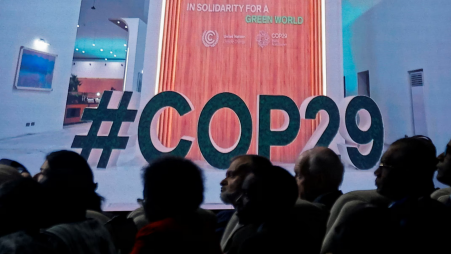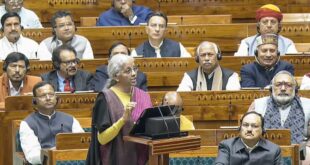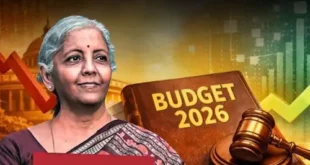
Dr. Seema Javed
COP29, originally scheduled to end on Friday evening, spilled into overtime as negotiators continued working on a finance deal. A new negotiating text released on Friday proposed that wealthy nations “take the lead” in providing USD 250 billion annually by 2035 to support developing countries. The draft also set a broader goal of raising USD 1.3 trillion annually by 2035, with public and private sector contributions. Which is a bad deal for developing world.Investment in RE technologies in the developing countries was 544 billion USD in 2022 itself. This figure will reach beyond 1.5 trillion USD by 2035 due to the growth in the sector and inflation.
Reacting to the latest proposed COP29 agreement on climate finance the Global Climate and Health Alliance called on national delegations to urgently work for a deal that protects people’s health and wellbeing before the climate summit ends.
“If COP29 agrees on the text shown to us today, it would sign a death sentence for millions”, said Jess Beagley, Policy Lead at the Global Climate and Health Alliance, a consortium of more than 200 health professional and health civil society organisations from around the world. “Such a deal would be a bad deal not just for developing countries already under pressure from the climate crisis, but for the entire world.”
The current text leaves the doors wide open to loans and private sector finance, which risk locking developing countries into further cycles of debt, poverty and disease. While human lives hang in the balance, COP29 risks offering fossil fuel companies a get out of jail free card, with references to fossil fuel subsidies and the obligation of polluters to pay removed from the text.
Avinash Persaud, Special Advisor on Climate Change to the President of the Inter-American Development Bank said that-
“There is no deal to come out of Baku that will not leave a bad taste in everyone’s mouth, but we are within sight of a landing zone for the first time all year. The recognition of needs on the text is vital to give integrity to the system, but the $250bn commitment to be led by developed countries is short given adaptation needs alone, and reliance on the hope and prayer of cross-border private sector flows that have so far been negligible will be a point of contention.”
Aarti Khosla, Director, Climate Trends said-
“The last leg of negotiations has become very hard yards. Evidently as obligations of the developed nations become exposed, their intentions are also getting exposed. The multilateral process is meant to deliver faith and credibility- we are far from both. The latest text changes goal posts as it calls on all countries developed and developing, to contribute towards climate finance. It offers no core amount, which is necessary, not just to fight climate change, but to deliver on the legal obligations of the developed world. Setting a trend of acting in bad faith and cornering developing nations is dangerous. Watering down ambition on all fronts is a setback to the process itself but also to what multilateralism can yield.”
The latest text offers no thematic sub-goals of mitigation, adaptation and loss and damage as part of the structure of the goal, and neither is there any ‘upward revision’ of quantum to reflect the evolving needs of developing countries. This is a heavily watered down text, far from what is needed to call this COP a success.”
Friederike Roder, VP Global Policy and Advocacy, Global Citizen
“The $250 billion target is not enough, not big enough, not fast enough, not good enough. While the world is burning, we cannot wait another 11 years for peanuts while giving the impression to put the fossil fuel transition on hold. The worst is that money is there and proposals are on the table which would allow to scale grant financing while making polluters pay. A minimum tax of 2% on 3,000 billionaires would be sufficient to raise $250bn per year in the form of grants – better than what the text offers as the $250bn target isn’t even clearly defined”.
Li Shuo, Director of China Climate Hub Asia Society
“The solution to the donor base issue is that countries like China will not be responsible for the 250 billion, but could be counted towards the delivery of that figure. This is classic strategic ambiguity, but towards the direction of China playing a more prominent role in helping developing countries”.
Dr. Rachel Cleetus, Policy Director for the Climate and Energy Program, Union of Concerned Scientists“With a paltry climate finance offer of $250 billion annually, and a deadline to deliver as late as 2035, richer nations including E.U. countries and the United States are dangerously close to betraying the Paris Agreement. This is nowhere near the robust and desperately needed funding lower income nations deserve to combat climate change. The central demand coming into COP29 was for a strong, science-aligned climate finance commitment, which this appalling text utterly fails to provide.”
Kaveh Guilanpour, Vice President for International Strategies at the Center for Climate and Energy Solutions“The NCQG text is a big step towards consensus being possible while the Mitigation Work Programme is far too weak for many countries. The UAE Dialogue text still has options. Ultimately, the issue is that while the NCQG text is much closer to a landing zone, to many countries (developed and developing), the overall package will not be viewed as balanced.”
Rishikesh Ram Bhandary, senior academic researcher at Boston University Global Development Policy Center“Expert estimates suggest that $500 billion by 2030 in official finance will be needed with another $500 billion in private finance mobilized. The $250 billion mentioned in the latest text is not enough.”
“The latest COP29 climate finance proposal makes a mockery of the UNFCCC process that should not only address the legitimate needs of developing countries, but also drive home the legitimate responsibilities of wealthy, developed nations”, said Dr Jeni Miller, Executive Director of the Global Climate and Health Alliance. “Many of the countries most impacted by climate change are already paying more to service their international loans than the combined budgets for their health systems and education, with devastating impacts on people’s health and wellbeing. It is unconscionable that wealthy countries are proposing a climate finance deal that could worsen the debt burden of countries facing the brunt of a climate crisis they did not cause.”
 Jubilee Post News & Views
Jubilee Post News & Views






